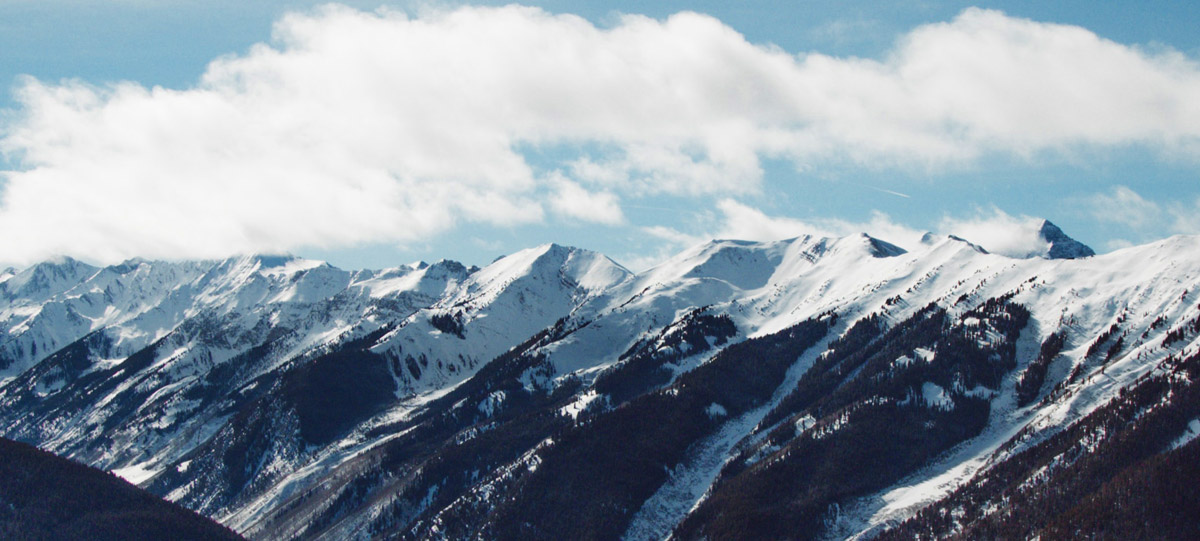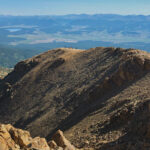Aspen, Colorado is one of the highest elevation cities in the United States, located about 8,000 feet above sea level. That could be 8,000 feet higher than home for many of our visitors — especially those who live near either coast. And for those visitors who plan to venture to the top of Aspen Mountain (locally referred to as Ajax), you’ll find yourself much higher — as high as 11,212 feet if you get off at the top of the Silver Queen Gondola!
If the elevations in the Aspen valley are far from what you’re used to, you might notice your body going through a bit of shock. It’s especially important to pay attention to your body while you’re here in case your non-acclimatized system starts to experience ill effects.
While its onset is ultimately unpredictable, altitude sickness tends to occur when someone changes elevation relatively quickly — whether ascending or descending. Altitude sickness is typically expected around 5,000 feet, although some people don’t feel any effects until they’re over 10,000 feet, and others don’t notice anything at all. Altitude sickness can affect anyone at any age and any fitness level. And it may affect you consistently or only periodically; there’s no way to know for sure.
Knowing how to deal with altitude sickness can make your high-elevation vacation more enjoyable, especially if you start feeling “off.” You can prevent an onset of acute mountain sickness by taking any symptoms of altitude sickness seriously, no matter how slight they seem:
- Do you feel any shortness of breath?
- Are you beginning to get a headache?
- Are you noticing your pulse speeding up?
- Do you feel a little dizzy or lightheaded?
- Are you more fatigued than usual (don’t just assume it’s jet lag or you could find yourself in the emergency room)?
While many assume the main reason for these symptoms is the 33% reduction in oxygen concentration at Aspen’s altitude, there’s not actually less oxygen at high elevation. The air always contains 21 percent oxygen in the air, but there’s less pressure pushing the oxygen into a person’s lungs. Meaning your lungs won’t be dealing with as much air as they’re used to, which can throw anyone’s system into a freak out. Our bodies can get used to the circumstances, but acclimatizing does take time (something Aspen Snowmass vacationers would prefer not to waste sitting around).
Fortunately, there are steps you can take to reduce (if not prevent) altitude sickness and avoid ruining a much-anticipated vacation. Get ready to deal with high altitude and make the most of your Aspen Snowmass visit:
SUNSHINE AND CARBS.
Get as much sunshine as possible (using sunscreen, of course) leading up to and during your Aspen vacation. Eat more complex carbohydrates, too. Sunlight has been shown to help with carbohydrate utilization, and carbohydrates require less oxygen to metabolize. You’ll be able to keep your energy up more efficiently, which can help you deal with (or perhaps avoid) any altitude sickness symptoms.
MAKE THE DRIVE.
Consider making the scenic drive to Aspen instead of taking a quick flight. You’ll give yourself more time to acclimate, and you’ll be gaining altitude at a slower rate, which can help to prevent system shock. If you start in Denver, you’ll be starting at 5,280 feet and will arrive at about 8,000 feet (with a few ups and downs) around 4 hours later.
SPEND A DAY IN DENVER OR BOULDER.
Okay, okay, we know you’ve been waiting all year (or maybe even multiple years) to finally visit Aspen. Believe us — we want you here at Aspen Snowmass, too!
Vacation time is precious, and you don’t want to waste a moment of it. But if you can, extending your vacation at either end with a day in the Front Range (Denver or Boulder, for example) can help you avoid altitude sickness. Who wants to drive four more hours right after a long flight, anyway?
Spending a night at Denver’s altitude may help your body adjust to Aspen’s higher altitude more quickly. People who spend a night in Denver are estimated to reduce their chances of altitude sickness by 25 to 50 percent. If you can spend two nights in Denver, your chances are even less. The Mile High City offers plenty of activities to enjoy, making it easy to fill your time if you decide to extend your trip.
GET A SCRIPT OR GINGKO.
If you need additional peace of mind, you can visit a doctor and request a prescription for Diamax before heading to Aspen. Diamox can reduce your chances of experiencing altitude sickness by 80-90%. Telluride’s Institute for Altitude Medicine has information to give to your doctor, if he/she is unfamiliar with the latest research on altitude sickness. The website also provides details to help you recognize a normal versus a serious response to altitude.
Other studies have found that taking Gingko Biloba can reduce altitude sickness symptoms.
TAKE IT EASY AT FIRST.
You’re most likely planning to relax at some point while you’re on vacation. So even though you’re excited for all your adventures at Aspen Snowmass, we recommend you take some extra downtime right after you arrive to make sure altitude sickness doesn’t force you to later.
If you can’t wait to explore, at least take the first day or two a bit easier. Maybe ski a half-day. Schedule your strenuous backcountry adventure for later in the week. Take longer and more frequent breaks at Bonnie’s, or make it an early après at The Little Nell. Basically, try to go light on your physical exertion to give your body time to adjust. If you can avoid the onset of altitude sickness, you’ll have much happier Aspen memories to treasure.
GET SOME EXTRA O2.
Aspen boasts a number of oxygen bars and lounges if you feel like you need some extra O2 to ease your adjustment. Try Alpine Oxygen, Rescue Lounge, or RAKxa Wellness Spa at The St. Regis to start. Oxygen Now is a medical grade oxygen rental company with a portable pharmacy focused on altitude symptoms, and they’ll deliver oxygen right to your door. For something quick and simple, you can find non-medical-grade oxygen boosters at Carl’s Pharmacy on Main.
HYDRATE.
Take it from the locals: “A happy mountaineer always pees clear!”
Meaning… Drink water. Drink more water. Drink even more water. In other words, stay hydrated. At higher altitudes, our bodies lose fluids much more quickly, so we need more frequent hydration to keep us in balance.
While sufficient hydration doesn’t directly prevent altitude sickness, even slight dehydration means your system will take longer to adjust. Dehydration also makes you feel pretty terrible, so making a conscious effort to up your intake of water and electrolytes means you’ve got a better chance of maximizing your enjoyment in Aspen.
WAIT TO DRINK ALCOHOL.
There’s a longstanding myth that alcohol “hits you harder” at altitude. Even though science tells us that’s false, consuming alcohol does depress both your breathing rate and your oxygen intake (meaning you’ll adapt more slowly to the altitude).
While you don’t need to avoid alcohol completely, drinking alcohol also contributes to dehydration, meaning a hangover might feel worse than usual. If you don’t usually get hangovers, you might be surprised to find yourself experiencing them in Aspen — unless you wait a day or two to acclimatize before you imbibe.
ACCLIMATIZE IN TOWN.
Take things slow on your first day in town. It’s okay to take it easy, and luckily, the spectacular beauty of Aspen’s natural surroundings can be viewed from your hotel room or vacation condo.
When you’ve traveled to a location that’s significantly higher than the elevation at home, you can’t push your body faster than it wants to go. A little extra downtime can give you enough cushion to acclimatize safely — and more quickly than if you pushed yourself. We’ve made a number of suggestions to help you avoid altitude sickness, but ultimately, it’s up to you to make the right decisions.
At Alpine Property, we can offer you a wide selection of premier luxury homes from which to choose your own perfect, relaxing Aspen or Snowmass basecamp. You’ll feel at home enough — and be surrounded by enough majestic views — for a convenient and comfortable adjustment to the thin mountain air.
To find your perfect pied-à-terre at 8,000 feet, contact us today. Call Alpine Property at 1-866-209-1540, or send us an email to book today.






